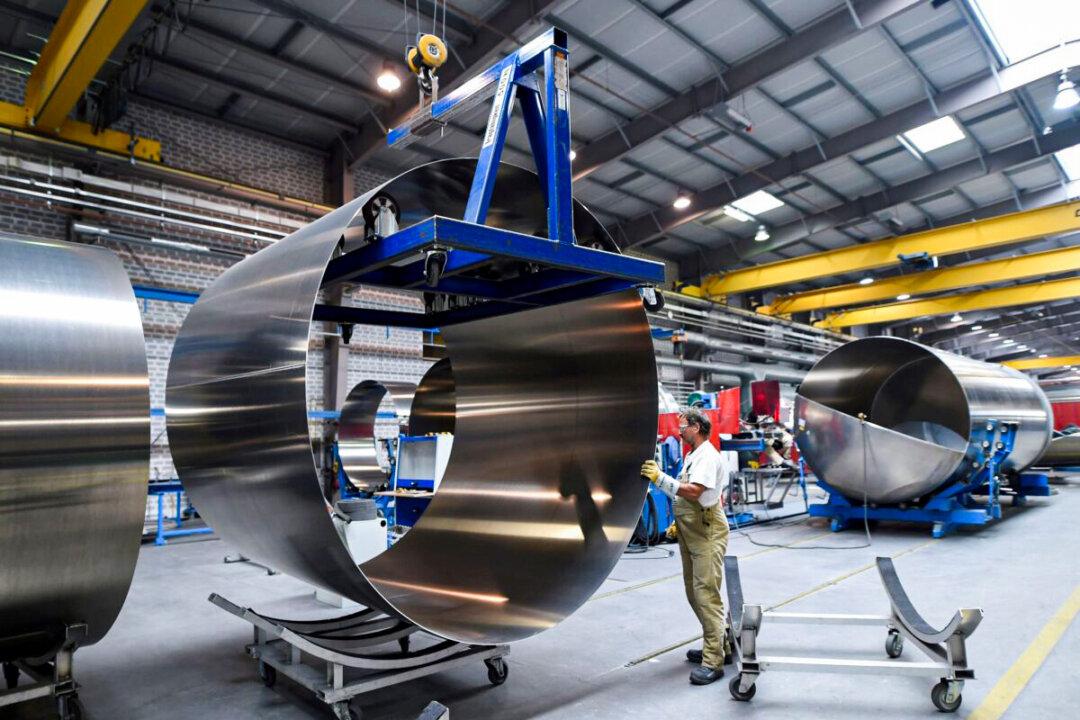Germany’s economy narrowly avoided a recession in the first quarter (Q1) as the Ukraine war and the lingering effects of COVID-19 pandemic restrictions weighed on economic activity, but with enough wiggle room for Europe’s biggest economy to eke out a 0.2 percent pace of growth.
Data released on May 25 by Germany’s Federal Statistical Office show that Germany’s gross domestic product grew by 0.2 percent quarter-over-quarter in Q1 of 2022, in line with analysts’ estimates.





